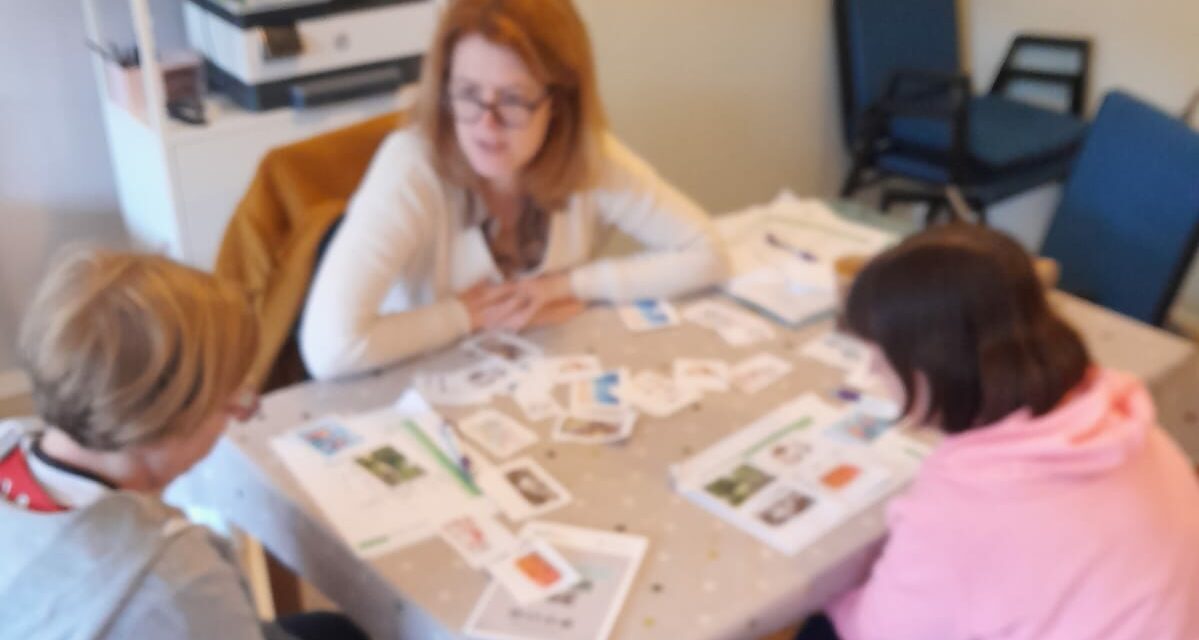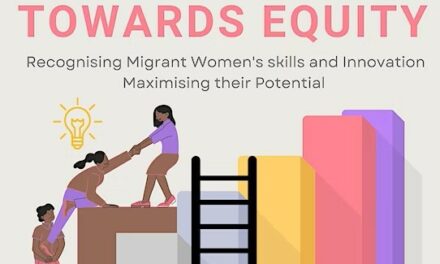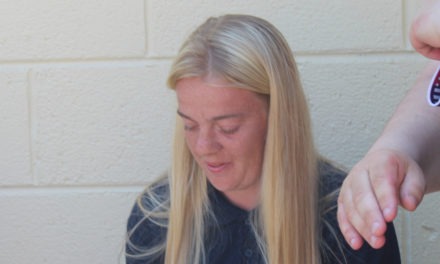Angela Shafer, community education coordinator from Northside Partnership in Dublin, wants to alert community workers to work being done in their area through SICAP that may be of help to people in other counties. Specifically, an initiative promoting financial inclusion among people with intellectual disabilities.
The local development company has developed a handbook for the sector and a training programme to support people with intellectual disabilities when it comes to financial wellbeing.
On Dublin’s northside, they help people in very practical ways to learn how to safely use ATMs, bank cards, Revolut, and how to be wise to scam artists.
“If there’s a need for this where I am in Dublin, there’s a need in the wider sector,” she says. While Angela’s team cannot deliver country-wide, she encourages anyone interested in developing services in their area to make contact.
Since 2020, Northside Partnership has been working on projects that are helping people in their catchment area to manage their finances more effectively. As well as providing courses for their core client base, they have created programmes specifically tailored to people with intellectual disabilities.
Angela spoke to Changing Ireland about financial inclusion, how to encourage it, about their handbook, and why we should never go fully cashless.
SICAP SUPPORT FOR MONEY MADE SENSE
In 2020, Northside Partnership created a programme, with funding from JP Morgan, called ‘Building Financial Capabilities in Ireland’ to address what they saw as an “education gap” around financial products, and limited awareness of the supports available through the Money Advice and Budgeting Service (MABS).
“It was developed as a result of research* undertaken by the Think-tank for Action on Social Change (TASC). A lot of their research was in the areas where Northside Partnership is based.
“So we developed and piloted the Money Made Sense programme in response to that. The original programme was targeted at low-income groups, unemployed people, unwaged people, and lone parents. Since we’ve mainstreamed it into our SICAP supports, the net has been cast wider,” she explained. The SICAP programme also supports Travellers, Roma, refugees, International Protection applicants, people with disabilities, people impacted by educational disadvantage, people with a criminal past, and islanders.
OVERCOMING RISKS AND BAD EXPERIENCES
The Money Made Sense programme places a strong emphasis on identifying risks in regards to technology and digital financial products – such as scams or high interest loans.
Angela says money is more complex than people realise and is about more than knowledge or skills: “Your relationship with money often can determine how you handle it on a day-to-day basis. You might have had bad past experiences with money.
“I had a woman whose ex-partner was a gambling addict. She was terrified of using banking apps because she was afraid of what it would lead to. It’s often about exploring people’s values around money, and looking at what suits you. What are the best ways of managing your money, whether it’s using cash or having more access to digital products that can benefit you and make you financially included,” she added.
NERVOUS ABOUT BANK CARDS
The training offered to people with intellectual disabilities can be tailored to the learners’ individual capabilities and motivations. Angela explained that, within the intellectual disability sector, people’s capabilities and what they can manage varies. The motivation to manage money also varies.
Said Angela:
“Particular challenges might be around things like everyday cash-handling, counting. The training is kind of going back to basics a little, understanding where money comes from, understanding where your money gets spent, looking at needs versus wants.”
“It could be little things like how to use an ATM. A lot of people feel nervous about using a bank card. It’s often a psychological block.
“More and more people are using Revolut, and that’s true of people with disabilities as well. It has pros and cons. They don’t have to worry about being shortchanged and they can keep track of the spending. It’s about teaching people how to use the app, and that every time you tap, your balance goes down.
“Staying safe online – that’s a big one. We can never be 100% savvy when it comes to scams, no one is, it’s about safeguarding, understanding when a text message or phone call is legit or not. A lot of these are topics that we tackle in the mainstream course as well. It’s just that we approach it differently.”

– The financial inclusion handbook created by Northside Partnership for the intellectual disabilities sector
LEARNING TO LIVE INDEPENDENTLY
Angela works with the Horizons programme, which is run through St Michael’s House, an intellectual disability service in Dublin. The programme aims to support people with intellectual disabilities to move towards independent living.
“We deliver the training out of a flat that they have assigned to this project. The financial inclusion training is part of a suite of supports. People practice their shopping skills, and with that comes daily budgeting and understanding the cost of groceries because normally, people will be used to someone else in the family doing the weekly shop. They might stay a few days in the flat to practice living independently.
“Everything we’re teaching them goes into practicing those skills. It’s a nice example of where our programmes can interact with what other services are trying to achieve and how we can support that,” she revealed.
HANDBOOK
Angela has also worked on the creation of a handbook for the sector, aimed at supporting services, families, and carers of people with intellectual disabilities to assist them with financial inclusion. It was launched in January and includes a money assessment, to determine the person’s level of interaction with money. It also has practical tasks and cut-out sheets, and resources such as a bill calendar, budgeting tools, and a meal planner to help with food shopping.
REPLICATING GOOD PRACTICE
Angela and her team at Northside Partnership have also worked on financial inclusion training with Praxis, a national service for young people with intellectual disabilities, and have plans to work with other services in the sector.
“With our SICAP programme, we are limited to working within northeast Dublin, our catchment area, but we’re lucky in that some national services exist within our area. We have plans to work with the Central Remedial Clinic to bring this programme to their service users, which is great.
“I feel if there’s a need for this where I am in Dublin, there’s a need in the wider sector and certainly the services that I’ve worked with have taken a great interest in this. The challenge for us is it’s not something that I can go across the country and deliver. So how do we create those capabilities in other services? I just want to put it out that this work is happening and if you’re interested, get in touch.”
Angela finds her work very rewarding, particularly when she can see how the training benefits learners in their everyday lives. “Often as instructors, we might feel that we’ve only made a small impact, but the people who are used to being around the service users see the difference. It’s incredibly rewarding working with this sector, you get an awful lot out of it.”
CASHLESS SOCIETY
Asked about the potential impact of a cashless society on people who might already struggle with financial inclusion, Angela says, “It’s something that services, families, and carers are aware of and want to leverage to the benefit of people who are vulnerable. Leveraging those products for the better so that it creates financial inclusion rather than leading to financial exclusion.”
She believes education about using digital, cashless methods of payments is essential: “The more technology that you’re using, the more risk you have of falling foul of a scam. With cash handling you don’t have those risks.
“Digital transactions are all well and good in terms of safeguarding people from their cash being mishandled, but there’s the temptation of tapping (too much) – tap, tap, tap pays for everything. Education around that really needs to be addressed, especially for vulnerable groups.”
She concluded: “I don’t think cash should ever be removed as an option for anyone, especially vulnerable target groups, older people, people with disabilities, if that’s what people are comfortable with.”
What is financial inclusion? Angela Shafer explains:
“It’s about having the ability to effectively manage everyday money handling and financial matters. It could be as simple as confidence with cash handling, access to a bank account, access to financial products, especially digital financial products, in a way that is financially healthy for you.
“It involves an understanding of financial products, as well as access and leveraging those products for the better. For example, understanding how interest is applied to loans, understanding and shopping around for bank accounts, being able to use a banking app, budgeting. It’s a whole set of life skills.”
To download the guide:
W: https://bit.ly/MoneySenseNP
COMBINED RESEARCH
* In 2022, TASC, Northside Partnership and North Dublin Region MABS published a 108 page report titled ‘Financial Capabilities – A Framework for Integrated Delivery’.
To download that report: https://bit.ly/TascCashCapable
To contact Angela and her team at Kish House, Greendale Road, Kilbarrack, Dublin 5:
T: 087 925 4095.
M: 087 925 4095.
E: angela.shafer@nspartnership.ie





